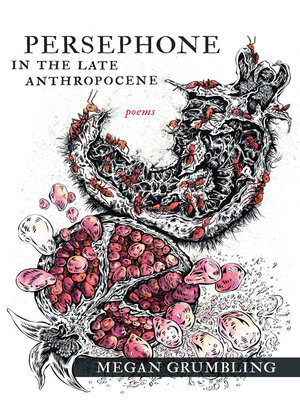
Sign up to save your library
With an OverDrive account, you can save your favorite libraries for at-a-glance information about availability. Find out more about OverDrive accounts.
Find this title in Libby, the library reading app by OverDrive.



Search for a digital library with this title
Title found at these libraries:
| Library Name | Distance |
|---|---|
| Loading... |
Persephone in the Late Anthropocene vaults an ancient myth into the age of climate change. In this poetry collection, the goddess of spring now comes and goes erratically, drinks too much, and takes a human lover in our warming, unraveling world. Meanwhile, Persephone's mother searches for her troubled daughter, and humanity is first seduced by the unseasonable abundance, then devastated by the fallout, and finally roused to act.
This ecopoetic collection interweaves the voices of Persephone, Demeter, and a human chorus with a range of texts, including speculative cryptostudies that shed light on the culture of the "Late Anthropocene." These voices speak of decadence and blame, green crabs and neonicotinoids, mysteries and effigies. They reckon with extreme weather, industrialized plenty, and their own roles in ecological collapse.
Tonally, the poems of this book range between the sublime and the profane; formally, from lyric verse and modern magical-realist prose poems to New Farmer's Almanac riddles and pop-anthropology texts. At the heart of this varied and inventive collection is story itself, as Demeter deconstructs "whodunits," as the chorus grasps that mythmaking is an act of "throwing their voices," and as their very language mirrors the downward spiral of destruction. Together, the collected pieces of Persephone in the Late Anthropocene form a narrative prism, exploring both environmental crisis and the question of how we tell it.
This ecopoetic collection interweaves the voices of Persephone, Demeter, and a human chorus with a range of texts, including speculative cryptostudies that shed light on the culture of the "Late Anthropocene." These voices speak of decadence and blame, green crabs and neonicotinoids, mysteries and effigies. They reckon with extreme weather, industrialized plenty, and their own roles in ecological collapse.
Tonally, the poems of this book range between the sublime and the profane; formally, from lyric verse and modern magical-realist prose poems to New Farmer's Almanac riddles and pop-anthropology texts. At the heart of this varied and inventive collection is story itself, as Demeter deconstructs "whodunits," as the chorus grasps that mythmaking is an act of "throwing their voices," and as their very language mirrors the downward spiral of destruction. Together, the collected pieces of Persephone in the Late Anthropocene form a narrative prism, exploring both environmental crisis and the question of how we tell it.







